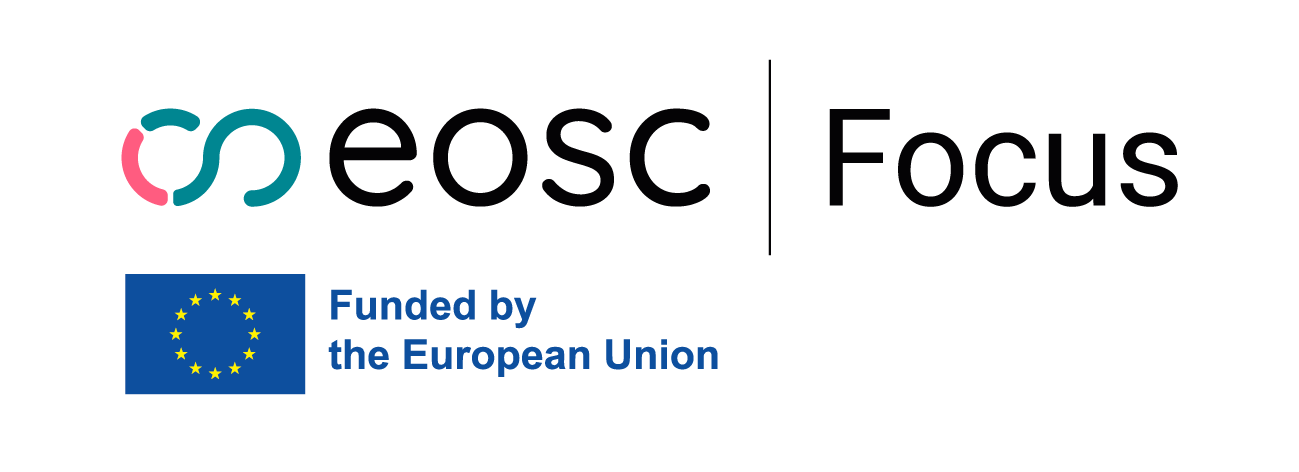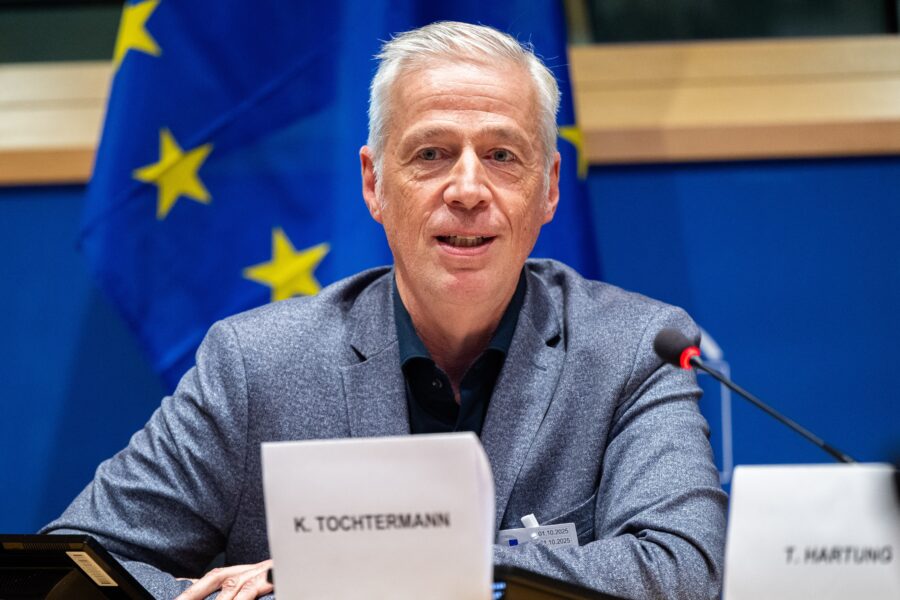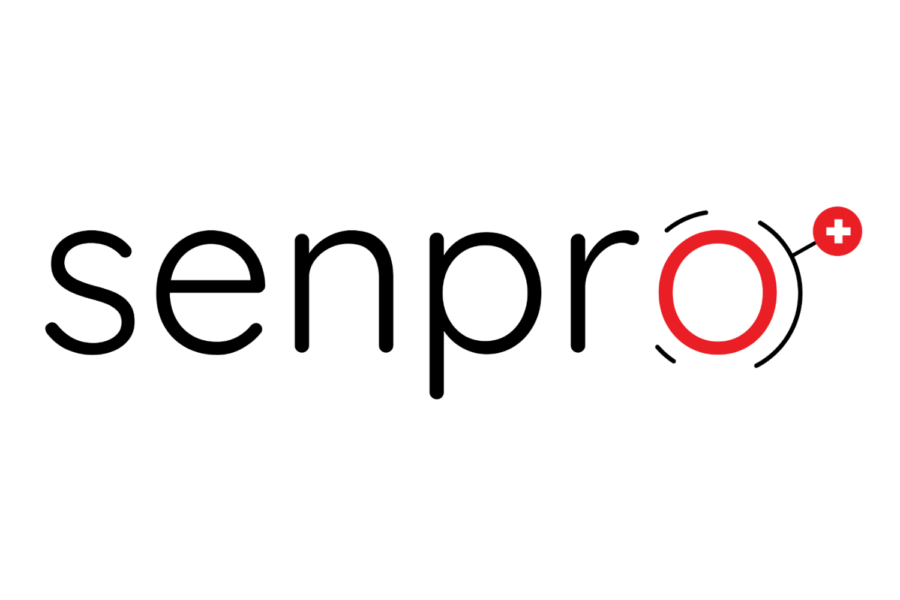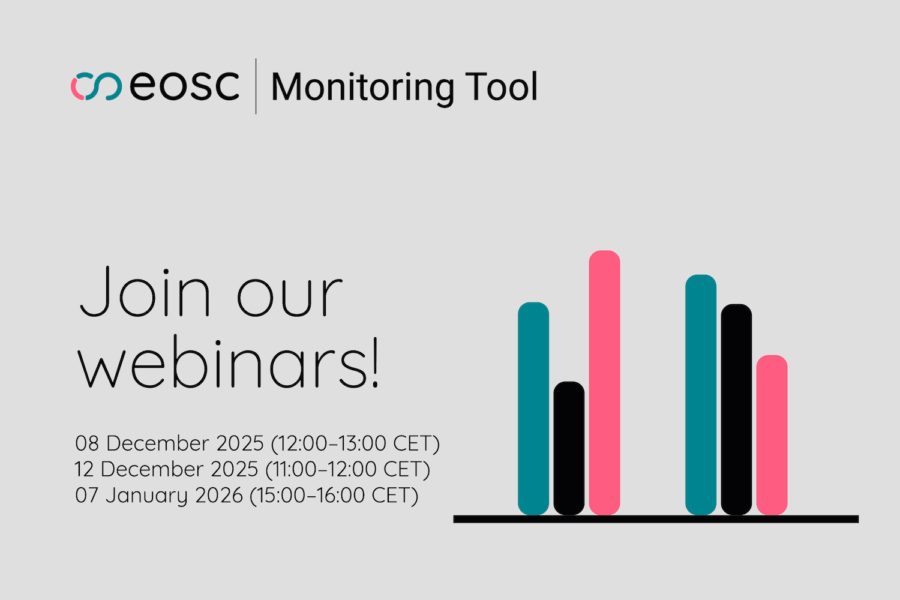This interview is part of a series coordinated by the EOSC Focus project. The interviews aim to highlight the role of the EOSC Association’s Mandated Organisations. By bringing their activities and insights to the forefront, the EOSC Focus interviews will help to reinforce the connections between each country’s Mandated Organisation and its EOSC Association member and observer organisations, as well as to make visible contributions to the implementation of EOSC at the national and institutional levels.
With great pleasure EOSC Focus had the opportunity to interview Sumithra Velupillai, Senior Research Officer at the Swedish Research Council (VR). The Swedish Research Council is one of those organisations that have a strategic double role in the EOSC Partnership: they represent Sweden both in the EOSC Steering Board and in the EOSC Association as a Mandated Organisation. The interview was conducted by Iiris Liinamaa and Sara Garavelli of CSC – IT Center for Science, and Isabel Caetano of the EOSC Association.
What is the role of the Swedish Research Council in EOSC?
The Swedish Research Council is the government agency appointed by the Swedish Ministry of Education and Research as the EOSC-A Mandated Organisation for Sweden. Beside this role in the EOSC Association, the Swedish Research Council also supports the Ministry of Education and Research as one of the two representatives for Sweden in the EOSC Steering Board. We see this unique dual role as an opportunity and a challenge. On the one hand it allows us to have a holistic lighthouse-view of the national direction and the community and on the other hand it is challenging to distinguish the roles, and sometimes one perspective prevails on the other. In general, being in the position of having the complete overview of the activities ongoing on a national level is a plus, and enables us to fulfil both roles and contribute to boosting Open Science and EOSC engagement in Sweden in a coordinated and collaborative way.
What are your main motivations for being a member of the EOSC Association, and how do your strategic and organisational goals reflect your commitment to EOSC?
In Sweden, national strategies for moving towards a system for Open Science are being developed. The Swedish Research Council has a mandate from the government to specifically focus on open access to research data on a national level. This aligns closely with the goals of the EOSC Association for EOSC’s development. The EOSC Association offers the European dimension and the opportunity to align our national strategies and activities with the EU’s policies and those of other countries.
How is your organization facilitating or promoting the advancement of the EOSC ecosystem in Sweden?
During the Swedish presidency [of the Council of the European Union] in 2023, the Swedish Research Council, together with Vinnova, supported the government in organizing a conference in Lund, Sweden, on research data and how research infrastructures provide new possibilities and benefits for society. The successful event led to a declaration in line with EOSC Partnership priorities. On 12 October 2023, following the Swedish EU presidency, a strategy-focused national event was organised with The Association of Swedish Higher Education Institutions. Representatives from government offices, educational institutions, funders, and the National Library of Sweden were invited to the event. It boosted strategic dialogue regarding Open Science for the forthcoming Swedish research proposition in 2024.
Which engagement activities have been developed to increase community representation and address their needs? Do you have a coordination mechanism in place?
In 2020, a National Reference Group for open access to research data and EOSC, coordinated by the Swedish Research Council, was established. It serves as a coordination mechanism aiming, among other things, towards increasing awareness of and engagement in these questions, including EOSC.
The Swedish Research Council has other expert groups, such as one on research infrastructures, that are also relevant for EOSC developments at national level. The expert groups advise our agency concerning priorities and funding. In return we keep them informed about and involved in national developments in Open Science-related issues. Additionally, in relation to the Association of Swedish Higher Education Institutions (SUHF), there are various sub-working groups (such as on research data) aiming at aligning our initiatives with the universities so that there is more coordination nationally through regular dialogues.
What is the Swedish Research Council’s level of commitment through financial and in-kind contributions?
We are the largest public funder for research at higher education institutions in Sweden. We also fund infrastructure initiatives, which are of national importance. We have been assigned to coordinate, promote and evaluate the work related to the transition to open access to research data. These tasks are linked to the funding cycle in terms of promoting Open Science practices and potentially to future requirements, such as open access policies. Publications funded by the Swedish Research Council must be made openly accessible and in accordance with Open Science principles.
We have several mandates in strategic assignments received from the Ministry of Education and Research. These include analytic and supportive work for the government on policy-related issues. There are numerous other initiatives in terms of data-driven science, the funding landscape and investments in research infrastructures in Sweden. In-kind contributions from the Swedish organizations focus more or less on activities in increasing knowledge levels, such as educational initiatives in different organizations.
At the moment we do not have dedicated funding lines for EOSC.
If you had to identify the most relevant national policies for Open Science and EOSC, could you select some examples to share with us?
The National Library of Sweden has had an assignment to establish national guidelines for promoting Open Science in Sweden, which was published in January 2024. It was developed via an open consultation process. As the guidelines will support organizations working in this field, the inclusive approach contributes to shaping policies that will resonate with the wide range of relevant stakeholders and build a collaborative and transparent path towards Open Science in Sweden. We have, together with others, proposed actions for promoting open access to research data practices and other EOSC-related questions. Moreover, many higher education institutions in Sweden have adopted or are creating new policies and guidelines in accordance with Open Science practices.
The Swedish Research Council publishes a yearly report on its mandate on open access to research data. In 2022, the Association of Swedish Higher Education Institutions (SUHF), together with several Swedish universities, produced a National Roadmap for Open Science. The Roadmap aims to clarify the responsibilities of Higher Education Institutions (HEIs) and the measures required to accelerate work on open access to research data and research results. In 2020, we, the Swedish Research Council, developed together with SUHF, a data management plan template to support actors working with data management plans. In 2015, we produced a Proposal for National Guidelines for Open Access to Scientific Information in collaboration and consultation with the National Library of Sweden.
What is your opinion about EOSC development in Sweden? Can you highlight some main strengths and challenges?
The 2023 Swedish presidency boosted EOSC and Open Science engagement in Sweden. Several Swedish organizations are members in the EOSC Association. They are highly engaged in EOSC development and implementation. We are constantly looking at how to reach more and more broadly the whole research community in Sweden to spread information about EOSC and its development. The “EOSC node” discussion will be emphasized on the national level in 2024.
National infrastructures are often structured as consortiums in Sweden among HEIs. As an example, the Swedish National Data Service (SND) is a university-owned infrastructure funded in a project manner. SND is hosted by Gothenburg University and jointly funded by the Swedish Research Council and a consortium of main Swedish universities. SND aims to support the accessibility, preservation, and reuse of research data and related materials.
Another strength are our key stakeholders from various levels. These include researchers as well as infrastructures. One example is the Data Centre at SciLifeLab which had a leading role in developing the COVID-19 Data Platform and the Swedish Pathogens Portal. The aim here is to provide information, guidelines, tools and services to facilitate data sharing and analysis to accelerate coronavirus and pandemic preparedness research. Additionally, the Swedish Research Council is involved in the EuroHPC Joint Undertaking.
Could you please share some examples showing EOSC’s impact in your country?
In Sweden, there are a lot of initiatives to increase skills, knowledge and awareness on Open Science practices. Several HEIs have courses for PhD students, and knowledge on this topic among young researchers is increasing. This shows that the Open Science practices have already become more or less a self-evident practice among young researchers.
Additionally, we co-organised a major conference in May 2023, “Open Science – From Policy to Practice”, that gathered policy makers, researchers, national representatives, science engagement officers and other stakeholders from across Europe to highlight different perspectives on shaping, implementing and embedding Open Science.
| About the Swedish Research Council Research for a wiser world The Swedish Research Council (VR) is Sweden’s largest governmental research funding body and supports research of the highest quality in all scientific fields. It advises the Government on research policy and works to ensure that research benefits society. The Swedish Research Council funds research by issuing calls for grant applications in open competition. In order to provide Swedish research with the best possible prerequisites, they fund research infrastructure, both in Sweden and abroad. Read more about the Swedish Research Council | |
| About Sumithra Velupillai Sumithra Velupillai is a Senior Research Officer (Strategic Data Resources, Department of Research Infrastructures) at the Swedish Research Council (SRC). She works, among other things, on SRC:s mandates related to open access to research data and EOSC. Prior to her role at the SRC she was a researcher in applied Natural Language Processing (NLP) and Health Informatics, and has worked in several international research environments, e.g. King’s College London, UCSD, University of Utah and Stockholm University. |  |






